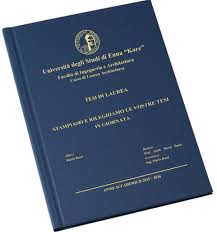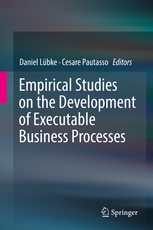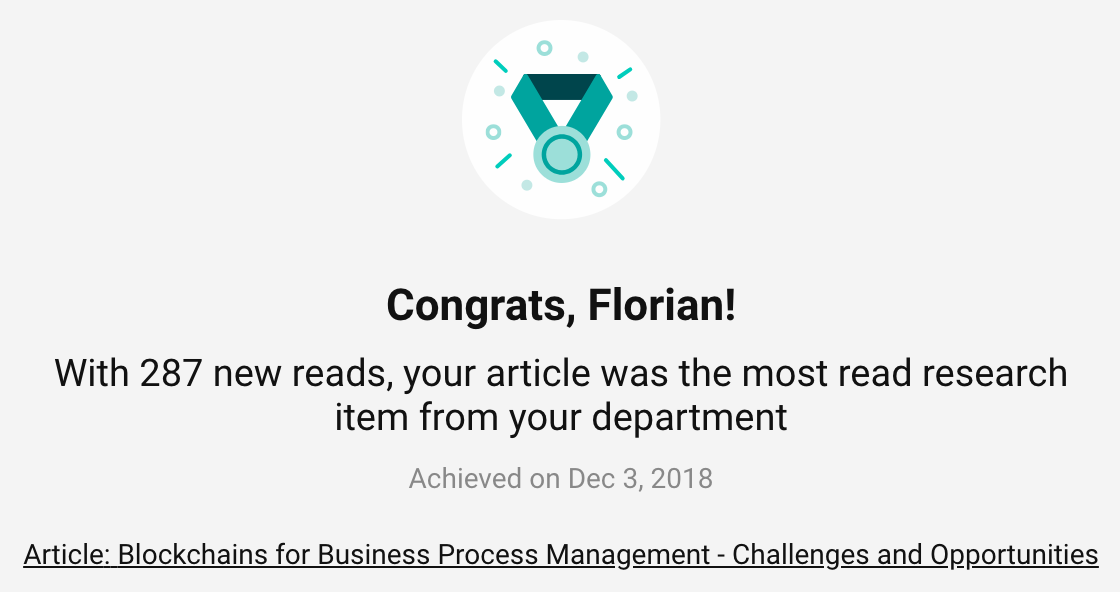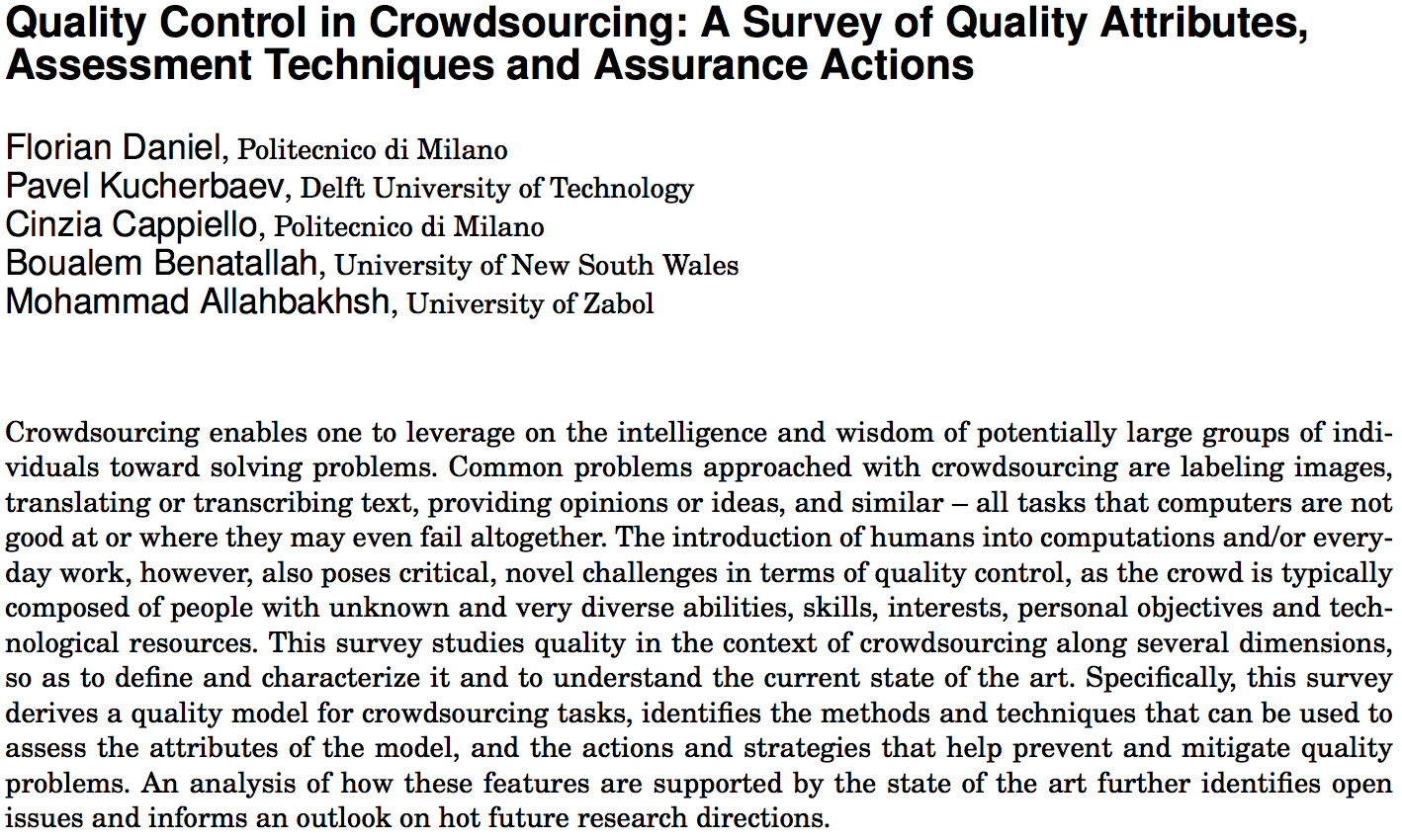
Hi, welcome to this website! If you are reading this text, I suppose you are interested in knowing something either about me or about my work, which is good. As for the former, I'm Florian Daniel, an associate professor at the Dipartimento di Elettronica, Informazione e Bioingegneria (DEIB) of the Politecnico di Milano in Milan, Italy. As for the latter, my work concentrates on data science, web/service engineering, business process management, crowdsourcing and blockchain.
News and sponsored events
 Please have a look at my
thesis proposals for students. The proposals are not fully updated,
but the topics give you an idea of likely projects. Time ago I also
presented some thesis proposals
at the meeting organized by the
Polimi Data Scientists.
Please have a look at my
thesis proposals for students. The proposals are not fully updated,
but the topics give you an idea of likely projects. Time ago I also
presented some thesis proposals
at the meeting organized by the
Polimi Data Scientists.

It's been a pleasure for me providing Daniel Lübke and Cesare Pautasso with a foreword to their new book on executable business processes. Have a read! Its full of valuable information if you are interested in running processes for real and doing so correctly.
Available from Springer here.

 Qualche mia idea su dove potrebbe andare il mondo blockchain di domani
pubblicato su
Industria Italiana (e un grazie a Marco Scotti per il lavoro professionale):
Qualche mia idea su dove potrebbe andare il mondo blockchain di domani
pubblicato su
Industria Italiana (e un grazie a Marco Scotti per il lavoro professionale):
Blockchain technology offers a sizable promise to rethink the way interorganizational business processes are managed because of its potential to realize execution without a central party serving as a single point of trust (and failure). To stimulate research on this promise and the limits thereof, in this article, we outline the challenges and opportunities of blockchain for Business Process Management (BPM). We first reflect how blockchains could be used in the context of the established BPM lifecycle and second how they might become relevant beyond. We conclude our discourse with a summary of seven research directions for investigating the application of blockchain technology in the context of BPM.

Crowdsourcing enables one to leverage on the intelligence and wisdom of potentially large groups of individuals toward solving problems. Common problems approached with crowdsourcing are labeling images, translating or transcribing text, providing opinions or ideas, and similar – all tasks that computers are not good at or where they may even fail altogether. The introduction of humans into computations and/or everyday work, however, also poses critical, novel challenges in terms of quality control, as the crowd is typically composed of people with unknown and very diverse abilities, skills, interests, personal objectives and technological resources. This survey studies quality in the context of crowdsourcing along several dimensions, so as to define and characterize it and to understand the current state of the art. Specifically, this survey derives a quality model for crowdsourcing tasks, identifies the methods and techniques that can be used to assess the attributes of the model, and the actions and strategies that help prevent and mitigate quality problems. An analysis of how these features are supported by the state of the art further identifies open issues and informs an outlook on hot future research directions.



